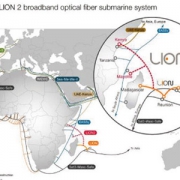What about e-Waste management?
Technology diffusion dominates the discourse on ICTs, leaving little room for action on e-waste management in the developing world. This is an unfortunate trend, as the rapidly changing technological landscape, brought forth by changes in media, obsolescence and affordability, spurs a surplus of global e-waste that is poorly managed.
This is exacerbated by stringent regulations in the developed world regarding the disposal of electronics. Consequently, much of the world’s 50 million tonnes of e-waste ends up in the developing world, including China, India and parts of Africa, where the e-waste regulatory framework and collection system is non-existent or far too weak to ensure compliance and accountability.
E-waste, which UNEP asserts will rise five-fold over the next decade, contains hazardous waste that may cause damage (health, social and economic) in excess of the perceived economic value of e-cycling and e-dumping. But experts contend that there are ways to combat this, specifically the removal of hazards before shipment. That is subject to stringent regulation of e-waste and heightened concerns about environmental harm in the developed world. This creates an underlying legal and economic disincentive to remove harmful residues before export to the developing world.
However, developing countries are taking greater interest in e-waste management. For instance, Kenya adopted guidelines for e-Waste management last year that provides a policy framework for regulating the booming sector. As the East African country prepares to launch its e-waste management policy, efforts are underway to raise public awareness on sustainable management. Kenya, a leading ICT hub with high technology adoption rates, will certainly experience a spike in local e-waste as its robust innovators churn out new technologies, replacing other widely used instruments.
The emerging policy framework will enable the country to better manage and benefit from the global expansion in e-waste, as the policy will categorize waste, itemize disposal procedures and practices. But the wider concerns about dangers posed by the disposal of e-waste versus other obsolete technologies remains a major concern, and could thwart proper management globally.










































